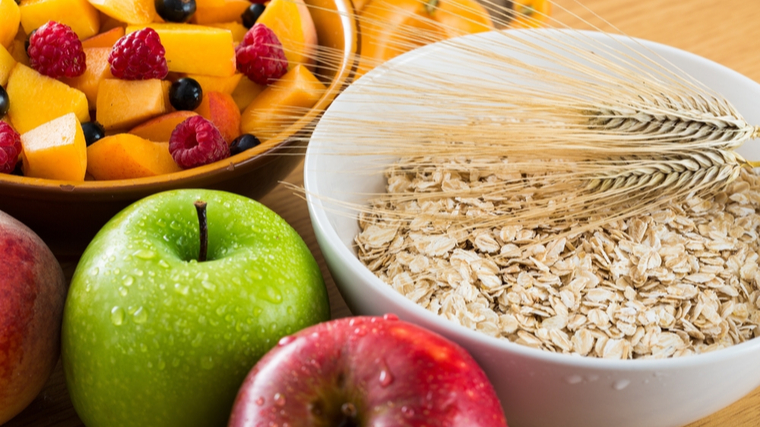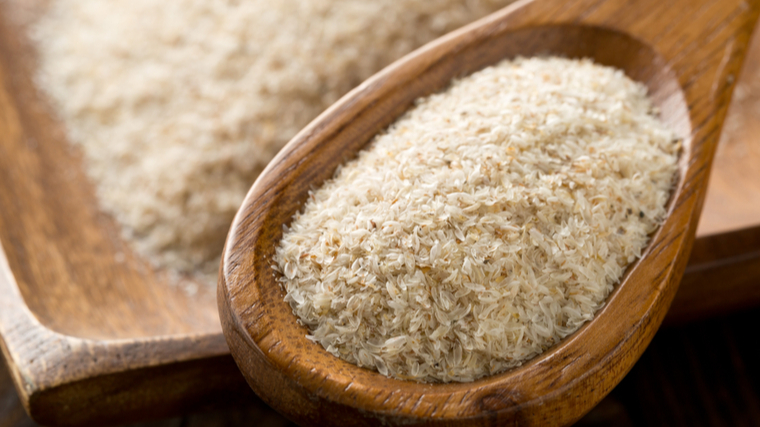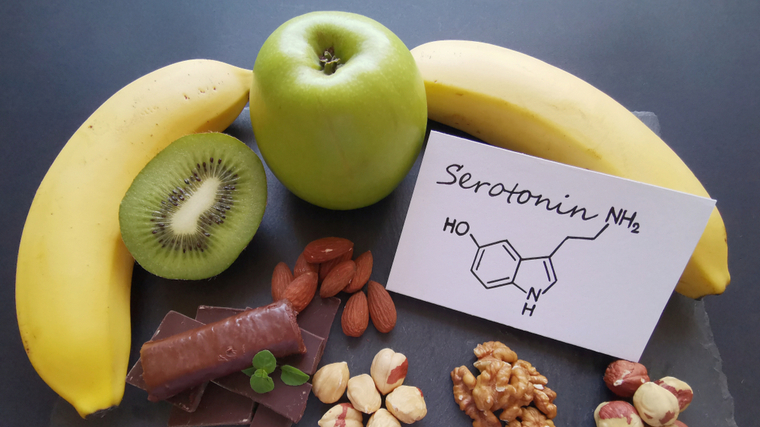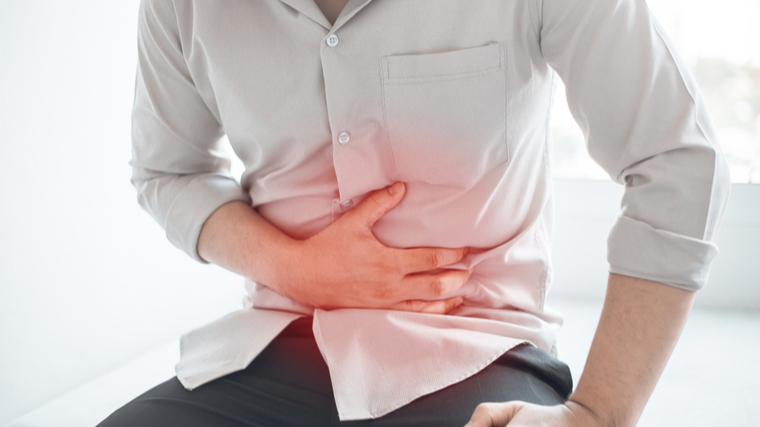What Are Appetite Suppressants and Do They Work? (original) (raw)
- Types of Appetite-Suppressant Supplements
- |
- Do Appetite-Suppressant Supplements Work?
- |
- Factors to Consider Before Trying
- |
- Alternatives to Appetite Suppressants
Maybe you’ve read about appetite suppressants or seen them advertised when you’re picking up your protein powders. You might also hear about them on your social media feed or in your gym’s locker room. Wherever you first learned about appetite suppressants in supplements, the first question that occurred to you might have been: Do appetite suppressants even work?
Appetite is an enormously complicated part of biology that’s influenced by many factors. Hormones like ghrelin, leptin, serotonin, cortisol, and others can increase or decrease your appetite. In turn, these hormones are influenced by your sleep, stress and activity levels, your macronutrients and micronutrients, drinking, drugs, and more. The speed at which you eat your food affects your appetite. Society affects your relationship with food and your body, which in turn can impact your appetite.

Credit: Billion Photos / Shutterstock
Are appetite suppressants in supplements enough to cut through all that noise and do what they’re advertised to do? This article will take you through three of the most common forms of appetite suppressant supplements — and the scientific research behind them.
Editor’s note: The content on BarBend is meant to be informative in nature, but it should not be taken as medical advice. The opinions and articles on this site are not intended for use as diagnosis, prevention, and/or treatment of health problems. It’s always a good idea to talk to your doctor before beginning a new fitness, nutritional, and/or supplement routine. None of these supplements are meant to treat or cure any disease. If you feel you may be deficient in a particular nutrient or nutrients, please seek out a medical professional.
Types of Appetite-Suppressant Supplements
- **Plant-Based Appetite-Suppressant Supplements
- Hormonal Appetite-Suppressant Supplements
- Stimulant-Based Appetite-Suppressant Supplements
Plant-Based Appetite-Suppressant Supplements
Fiber might seem something to eat rather than something to make you feel like eating less, but plant-based appetite suppressants tend to be all about fiber. Why? Foods — or supplements — that are high in fiber take up a lot of physical space in your stomach, which can send “hey, we’re done eating” hormonal signals to your brain. Fiber also takes a longer time to digest than other types of food — which helps you feel fuller for longer periods of time.
Glucomannan
In supplements, glucomannan is one such helpful fiber. It’s used in a lot of fat burners like Leanbean and is made from the root of the Japanese konjac plant. Studies suggest that one gram of glucomannan per day can contribute to weight loss. (1) Because it absorbs so much water, though, it can make you thirsty. Studies also find that it may reduce the amount of protein and fat absorbed from a meal, but besides that, few side effects are reported. (2)
Psyllium Husk
Other forms of appetite-suppressing fiber in supplements comes from psyllium husk, which is made from the seeds of the plantago plant. It’s high in soluble fiber and forms a thick gel when mixed with water.

Credit: Shawn Hempel / Shutterstock
Studies have suggested that about two teaspoons of the stuff (around six grams) taken before a meal can significantly reduce the amount of calories consumed. (3)
Fengreek
Fenugreek, a herb from the legume family, has been found to increase feelings of fullness. (4) Research suggests that taking eight grams of fenugreek before a meal can lead to you feeling fuller from a smaller meal. (4)
Although these supplements are plant-based and potentially advertised as natural, it’s worth noting that supplements are not regulated as drugs by the Food and Drug Administration (FDA). Research has shown that even people who do not seem to misuse herbal supplements may experience side effects that end up in calls to poison control centers. (5)
Hormonal Appetite-Suppressant Supplements
You might associate serotonin with being the “happy hormone,” and you’re not wrong. But a lesser-known tidbit about this hormone is that it can increase your feelings of satisfaction from a meal. (6) That’s why serotonin production is the unexpected target of hormone-based appetite suppressants.
5-HTP
Often sourced from the plant Griffonia simplicifolia, 5-hydroxytryptophan (5-HTP) is often found in supplements related to stress relief. This chemical is what’s called a serotonin precursor as it can be converted into serotonin in your body.

Credit: Danijela Maksimovic / Shutterstock
Studies suggest that 5-HTP can increase feelings of fullness when taken daily over the course of a month. (7) Note that it can produce nausea and vomiting in some folks. (8)
Caralluma Fimbriata
The herb Caralluma fimbriata has a similar effect on serotonin, with studies suggesting that about a gram of the plant’s extract per day resulted in an increase in feeling full — and therefore, a decrease in appetite. (9) However, other studies suggest that there is no relationship between C. fimbriata and appetite suppression, but found that common side effects include nausea, diarrhea, rashes, and constipation. (10)
Garcinia Cambogia
Finally, even though Garcinia cambogia is often touted as a “miracle weight loss cure” because it appears to reduce belly fat. (11) Research suggests that its impacts on appetite may be short-term, with long-term effects unknown. (12) Other studies have concluded that though this plant may increase serotonin levels, it may have no effect on weight — so the research is mixed. (13)
Stimulant-Based Appetite-Suppressant Supplements
Stimulants might wake you up in the morning — and get you pumped for your next workout — but they’re also often used as appetite suppressants. But are stimulants effective and safe appetite suppressants long-term?
Caffeine
While caffeine is often touted as an appetite suppressant, the research is a bit mixed. Some research suggests that if you consume caffeine 25 to 30 minutes before a meal, you may wind up taking in less energy from your meal. (14)

Credit: That Girl Sahar / Shutterstock
However, other research has shown that caffeine intake doesn’t have a significant impact on how much study participants ate nor on their overall appetite. (15) Some studies show that doubling caffeine intake might correlate with reduced levels of body fat. (16) However, others report blurred vision and seizure activity after taking caffeine in weight loss supplements. (17)
Nicotine
According to studies, many people vape or smoke nicotine for the purpose of suppressing their appetite and maintaining weight loss. (18) Research suggests that this is because nicotine seems to make people less hungry, and also serves as a behavioral distraction (so people might smoke when they’re bored or upset instead of eat food). (19)
However, research has also shown that women with eating disorders are at increased risk for smoking because of these appetite-suppressants qualities. (20) Studies have also shown that smoking tobacco increases people’s risk of type 2 diabetes and heart disease by stimulating the growth of abdominal fat tissue. (21) Those risks are in addition to the increased risks of reduction in life span, cardiovascular diseases, pulmonary diseases, and neurological diseases. (22)(23)(24)(25)(26)(27)
Do Appetite-Suppressant Supplements Work?
As with pretty much everything in fitness, whether something is effective really depends on your goals and the overall context of your training. Are you looking to suppress your appetite so you can get through a long, intense training session without getting hangry? You might want to incorporate some glucomannan into your pre-workout shake.
On the other hand, if you’re looking to reduce your caloric intake, research suggests that appetite suppressants might be effective in the short-term. It’s important to note that research has yet to show clear long-term effects, and studies suggest that certain appetite-suppressing drugs may come with long-term cardiovascular dangers and risks of developing eating disorders. (28(29)(30)
Factors to Consider Before Trying Appetite Suppressants
Even in cases where they succeed in suppressing your appetite, studies show that appetite-suppressing supplements can come with significant risks. These include increasing your risk of developing disordered eating habits and immediate side effects like nausea or seizures. (28)(29)(30)(17)
Potential Side Effects
As with anything in training, the specific impacts you experience will depend on your own body, what you’re taking, and how much of it. Studies suggest that certain appetite suppressants found in supplements, like C. fimbriata, might cause nausea, diarrhea, rashes, and constipation. (10)

Credit: Chompoo Suriyo / Shutterstock
Extracted from plants, 5-HTP can also cause nausea and vomiting. (8) And research has found that caffeine in weight loss supplements can cause blurred vision and even seizures, while herbal supplements might cause people to experience side effects that necessitate calls to poison control centers. (17)(5)
Potential Long Term Health Risks
Studies note that many appetite suppressants have not been studied for their long-term health implications, while others have found that appetite suppressing drugs may be associated with long-term cardiovascular health risks, reduced life space, and pulmonary and neurological diseases. (28)(12)(22)(23)(24)(25)(26)(27)
In addition to physical unknowns, research has found that appetite suppressants come with known immediate risks with long-term health implications. Studies have shown that people who take diet pills or other weight control products with the goal of losing weight are more likely to be diagnosed with an eating disorder within one to five years. (29)(30) Studies have also demonstrated that people with low body image and esteem are more likely to turn to weight loss products, even when they pose significant health risks. (31)
Alternatives to Appetite Suppressants
You may have a training goal of losing body fat, but you may want to explore alternatives to appetite suppressants. There are several options for you.
Intuitive Eating
If one of your goals is reducing caloric intake, studies suggest that intuitive eating can offer a safer means of addressing concerns about your body and your eating habits. (32)(33) Research has found that intuitive eating can lead to more stable weight levels than trying to restrict or limit what you eat, which can lead to greater weight fluctuation and body dissatisfaction. (34)(35)(36)

Credit: Oksana Mizina / Shutterstock
With intuitive eating, you focus on eating when you’re hungry and stopping when you’re full. While it’s a simple principle, if you’ve practiced a lot of calorie restriction or tend to eat when you’re upset or bored, you might need an adjustment period to re-learn how to listen to your body’s cues.
Lifters might have an easier time adjusting to this because they are probably already somewhat in tune with their body. Can you add another five pounds to your big lift today because the weight is moving well, or should you hold off until next week based on how slow your warm-up and ramp-up sets felt? Trying out intuitive eating brings a level of mindfulness to your nutrition that can serve you well on and off the platform.
Eat More Fiber and Protein
Plant-based appetite suppressants like glucomannan, psyllium, and fenugreek produce the feeling of fullness between meals and snacks for a simple reason: they’re important sources of fiber. Studies show that consuming fiber can make you feel fuller for longer periods of time. (37) So, incorporating more fiber into your daily diet can be an excellent solution if you want to stave off hanger.
Research also shows that incorporating a lot of protein into your daily diet can keep you feeling full longer. (38)(39) Making sure you’re getting adequate levels of fiber and increasing your protein intake might go a long way to making that early-morning breakfast even more satisfying.
Nutrient Timing
If it feels psychologically safe and empowering for you to keep track of your calories or engage with intermittent fasting, it might be worth your while to explore these options. Athletes often tie this nutritional precision with timing their meals to most effectively energize their workouts. Consider keeping track of when your energy rises and falls surrounding meal and snack times.
For example, do you experience less indigestion and feel more energized when lifting on an empty stomach? Try timing your nutrition to make sure you can fuel your workouts while keeping your body feeling good. And, if it makes that journey easier, you might consider a moderate dose of appetite suppressants in consultation with your doctor.
Wrapping Up
A regular exercise habit, good sleep hygiene, managing stress levels, and a diet that includes plenty of fiber, water, and protein will go a long way toward helping keep your appetite and “hunger hormones” feeling good. Nonetheless, when used judiciously and under the supervision of a doctor, you may find success by occasionally employing some of the products outlined here — just remember the “under the supervision” of a doctor part.
References
- Walsh DE, Yaghoubian V, Behforooz A. Effect of glucomannan on obese patients: a clinical study. Int J Obes. 1984;8(4):289-93.
- Baer DJ, Rumpler WV, Miles CW, Fahey GC Jr. Dietary fiber decreases the metabolizable energy content and nutrient digestibility of mixed diets fed to humans. J Nutr. 1997 Apr;127(4):579-86.
- Brum JM, Gibb RD, Peters JC, Mattes RD. Satiety effects of psyllium in healthy volunteers. Appetite. 2016 Oct 1;105:27-36.
- Mathern JR, Raatz SK, Thomas W, Slavin JL. Effect of fenugreek fiber on satiety, blood glucose and insulin response and energy intake in obese subjects. Phytother Res. 2009 Nov;23(11):1543-8.
- Robinson RF, Griffith JR, Nahata MC, Mahan JD, Casavant MJ. Herbal weight-loss supplement misadventures per a regional poison center. Ann Pharmacother. 2004 May;38(5):787-90.
- Voigt JP, Fink H. Serotonin controlling feeding and satiety. Behav Brain Res. 2015 Jan 15;277:14-31.
- Rondanelli M, Opizzi A, Faliva M, Bucci M, Perna S. Relationship between the absorption of 5-hydroxytryptophan from an integrated diet, by means of Griffonia simplicifolia extract, and the effect on satiety in overweight females after oral spray administration. Eat Weight Disord. 2012 Mar;17(1):e22-8.
- Smarius LJ, Jacobs GE, Hoeberechts-Lefrandt DH, de Kam ML, van der Post JP, de Rijk R, van Pelt J, Schoemaker RC, Zitman FG, van Gerven JM, Gijsman HJ. Pharmacology of rising oral doses of 5-hydroxytryptophan with carbidopa. J Psychopharmacol. 2008 Jun;22(4):426-33.
- Kuriyan R, Raj T, Srinivas SK, Vaz M, Rajendran R, Kurpad AV. Effect of Caralluma fimbriata extract on appetite, food intake and anthropometry in adult Indian men and women. Appetite. 2007 May;48(3):338-44.
- Jayawardena R, Francis TV, Abhayaratna S, Ranasinghe P. The use of Caralluma fimbriata as an appetite suppressant and weight loss supplement: a systematic review and meta-analysis of clinical trials. BMC Complement Med Ther. 2021 Nov 10;21(1):279.
- Hayamizu K, Ishii Y, Kaneko I, Shen M, Okuhara Y, Shigematsu N, Tomi H, Furuse M, Yoshino G, Shimasaki H. Effects of garcinia cambogia (Hydroxycitric Acid) on visceral fat accumulation: a double-blind, randomized, placebo-controlled trial. Curr Ther Res Clin Exp. 2003 Sep;64(8):551-67.
- Onakpoya I, Hung SK, Perry R, Wider B, Ernst E. The Use of Garcinia Extract (Hydroxycitric Acid) as a Weight loss Supplement: A Systematic Review and Meta-Analysis of Randomised Clinical Trials. J Obes. 2011;2011:509038.
- Kim JE, Jeon SM, Park KH, Lee WS, Jeong TS, McGregor RA, Choi MS. Does Glycine max leaves or Garcinia Cambogia promote weight-loss or lower plasma cholesterol in overweight individuals: a randomized control trial. Nutr J. 2011 Sep 21;10:94.
- Schubert MM, Irwin C, Seay RF, Clarke HE, Allegro D, Desbrow B. Caffeine, coffee, and appetite control: a review. Int J Food Sci Nutr. 2017 Dec;68(8):901-912.
- Panek-Shirley LM, DeNysschen C, O’Brien E, Temple JL. Caffeine Transiently Affects Food Intake at Breakfast. J Acad Nutr Diet. 2018 Oct;118(10):1832-1843.
- Tabrizi R, Saneei P, Lankarani KB, Akbari M, Kolahdooz F, Esmaillzadeh A, Nadi-Ravandi S, Mazoochi M, Asemi Z. The effects of caffeine intake on weight loss: a systematic review and dos-response meta-analysis of randomized controlled trials. Crit Rev Food Sci Nutr. 2019;59(16):2688-2696.
- Pendleton M, Brown S, Thomas CM, Odle B. Potential toxicity of caffeine when used as a dietary supplement for weight loss. J Diet Suppl. 2013 Mar;10(1):1-5.
- Jackson SE, Brown J, Aveyard P, et al. Vaping for weight control: A cross-sectional population study in England. Addict Behav. 2019;95:211-219.
- Audrain-McGovern J, Benowitz NL. Cigarette smoking, nicotine, and body weight. Clin Pharmacol Ther. 2011 Jul;90(1):164-8.
- Anzengruber D, Klump KL, Thornton L, Brandt H, Crawford S, Fichter MM, Halmi KA, Johnson C, Kaplan AS, LaVia M, Mitchell J, Strober M, Woodside DB, Rotondo A, Berrettini WH, Kaye WH, Bulik CM. Smoking in eating disorders. Eat Behav. 2006 Nov;7(4):291-9.
- Wierzejska R, Jarosz M. Czy palenie tytoniu jest skuteczne w kontroli masy ciała–przeglad piśmiennictwa [Is tobacco smoking an effective means of body weight control–review of literature]. Przegl Lek. 2008;65(10):692-5.
- Das SK. Harmful health effects of cigarette smoking. Mol Cell Biochem. 2003 Nov;253(1-2):159-65. doi: 10.1023/a:1026024829294.
- West R. Tobacco smoking: Health impact, prevalence, correlates and interventions. Psychol Health. 2017;32(8):1018-1036.
- Onor IO, Stirling DL, Williams SR, et al. Clinical Effects of Cigarette Smoking: Epidemiologic Impact and Review of Pharmacotherapy Options. Int J Environ Res Public Health. 2017;14(10):1147. Published 2017 Sep 28.
- Saha SP, Bhalla DK, Whayne TF Jr, Gairola C. Cigarette smoke and adverse health effects: An overview of research trends and future needs. Int J Angiol. 2007 Fall;16(3):77-83. doi: 10.1055/s-0031-1278254.
- Mackenbach JP, Damhuis RA, Been JV. De gezondheidseffecten van roken [The effects of smoking on health: growth of knowledge reveals even grimmer picture]. Ned Tijdschr Geneeskd. 2017;160:D869.
- Yanbaeva DG, Dentener MA, Creutzberg EC, Wesseling G, Wouters EF. Systemic effects of smoking. Chest. 2007 May;131(5):1557-66. doi: 10.1378/chest.06-2179.
- Paumgartten FJ. Long-term health benefits of appetite suppressants remain unproven. Rev Saude Publica. 2011 Dec;45(6):1192-6.
- Levinson JA, Sarda V, Sonneville K, Calzo JP, Ambwani S, Austin SB. Diet Pill and Laxative Use for Weight Control and Subsequent Incident Eating Disorder in US Young Women: 2001-2016. Am J Public Health. 2020 Jan;110(1):109-111.
- Hazzard VM, Simone M, Austin SB, Larson N, Neumark-Sztainer D. Diet pill and laxative use for weight control predicts first-time receipt of an eating disorder diagnosis within the next 5 years among female adolescents and young adults. Int J Eat Disord. 2021 Jul;54(7):1289-1294.
- Whisenhunt BL, Williamson DA, Netemeyer RG, Andrews C. Health risks, past usage, and intention to use weight loss products in normal weight women with high and low body dysphoria. Eat Weight Disord. 2003 Jun;8(2):114-23.
- Beintner I, Emmerich OLM, Vollert B, Taylor CB, Jacobi C. Promoting positive body image and intuitive eating in women with overweight and obesity via an online intervention: Results from a pilot feasibility study. Eat Behav. 2019 Aug;34:101307.
- Christoph MJ, Hazzard VM, Järvelä-Reijonen E, Hooper L, Larson N, Neumark-Sztainer D. Intuitive Eating is Associated With Higher Fruit and Vegetable Intake Among Adults. J Nutr Educ Behav. 2021 Mar;53(3):240-245.
- Tylka TL, Calogero RM, Daníelsdóttir S. Intuitive eating is connected to self-reported weight stability in community women and men. Eat Disord. 2020 May-Jun;28(3):256-264.
- Warren JM, Smith N, Ashwell M. A structured literature review on the role of mindfulness, mindful eating and intuitive eating in changing eating behaviours: effectiveness and associated potential mechanisms. Nutr Res Rev. 2017 Dec;30(2):272-283.
- Camilleri GM, Méjean C, Bellisle F, Andreeva VA, Kesse-Guyot E, Hercberg S, Péneau S. Intuitive eating is inversely associated with body weight status in the general population-based NutriNet-Santé study. Obesity (Silver Spring). 2016 May;24(5):1154-61.
- Clark MJ, Slavin JL. The effect of fiber on satiety and food intake: a systematic review. J Am Coll Nutr. 2013;32(3):200-11.
- Moon J, Koh G. Clinical Evidence and Mechanisms of High-Protein Diet-Induced Weight Loss. J Obes Metab Syndr. 2020;29(3):166-173.
- Westerterp-Plantenga MS, Lemmens SG, Westerterp KR. Dietary protein – its role in satiety, energetics, weight loss and health. Br J Nutr. 2012 Aug;108 Suppl 2:S105-12.
Featured Image: Billion Photos/Shutterstock